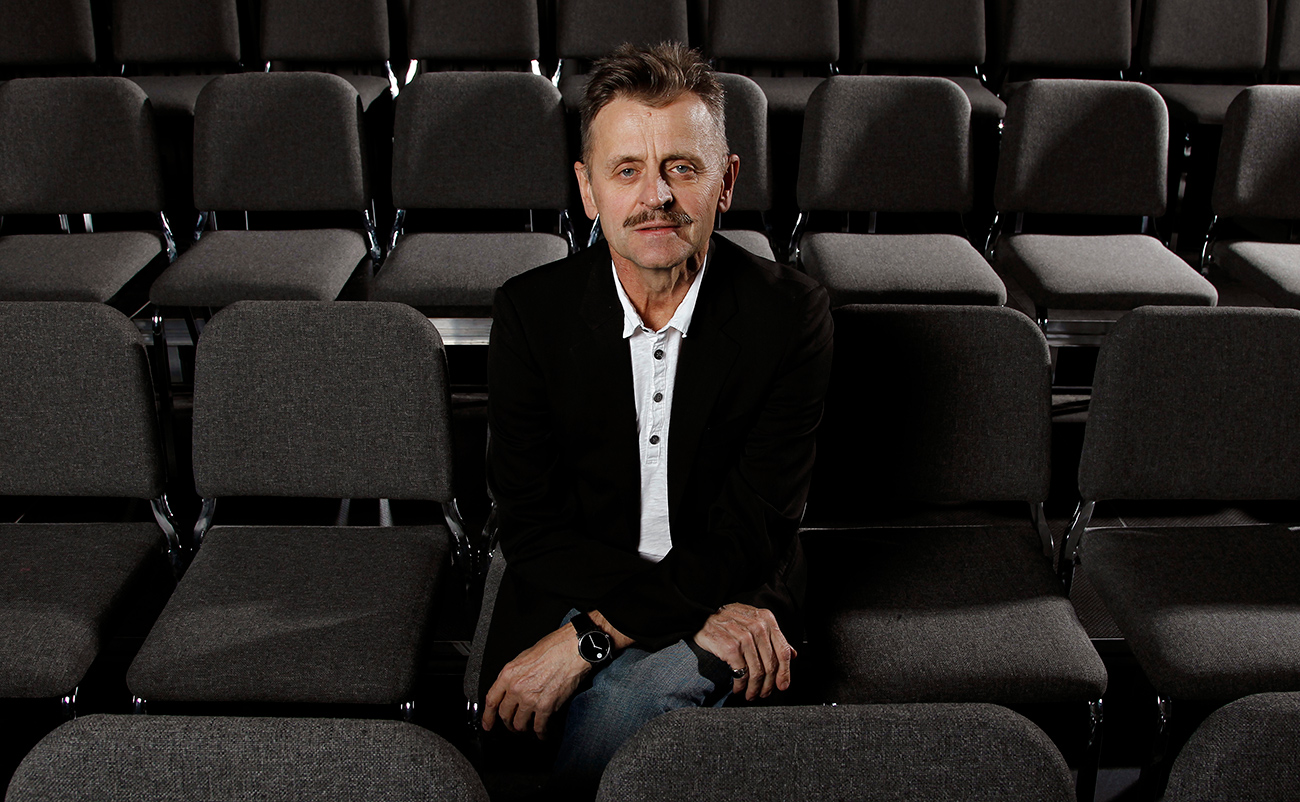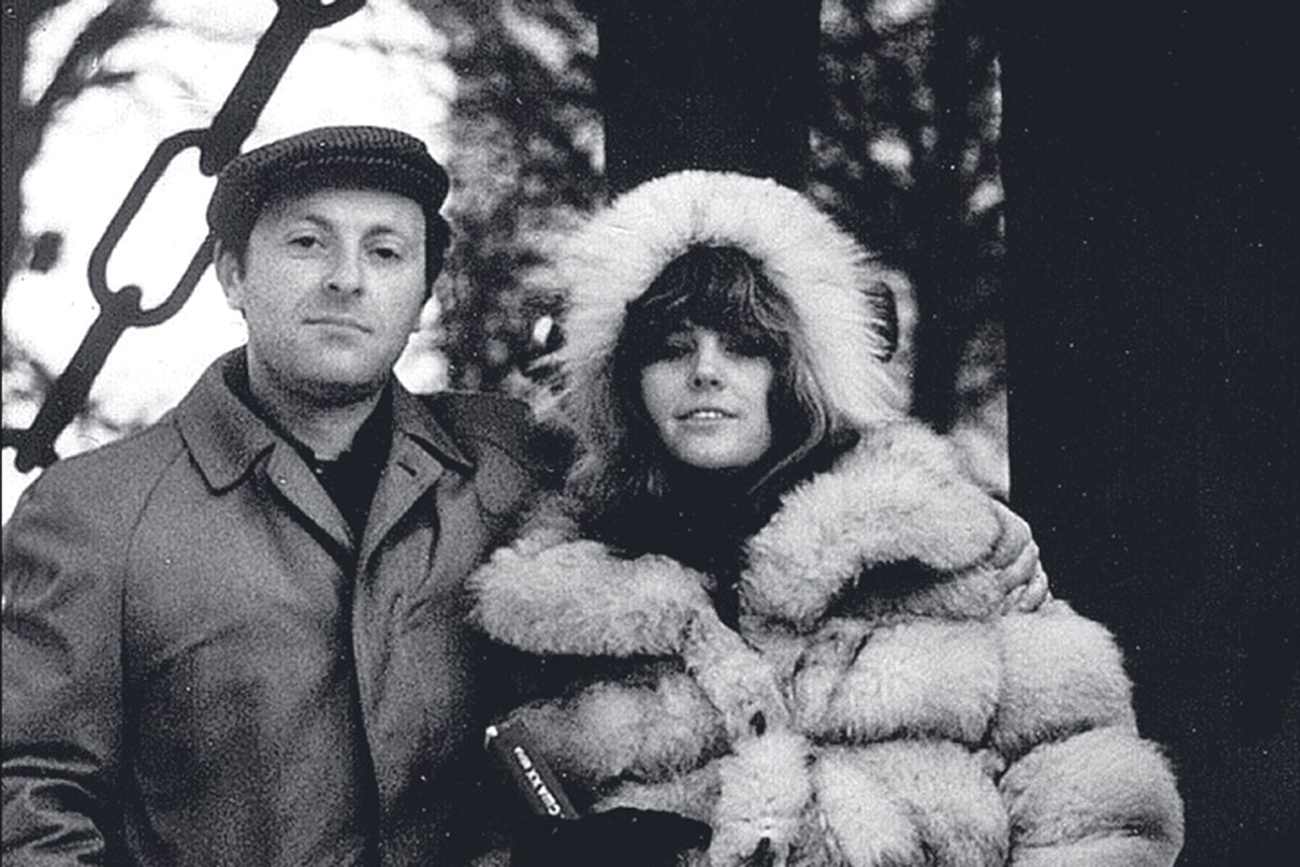Mikhail Baryshnikov: On the stage it’s just me, and Brodsky’s poems

Mikhail Baryshnikov.
APRussian Art and Culture: How would you describe Brodsky/Baryshnikov in one sentence?
Mikhail Baryshnikov:. A poetic journey
What made you say “yes” to participating in Brodsky/Baryshnikov project staged by Alvis Hermanis?
M.B.: Alvis Hermanis invited me to do it, and I was honored to work with such a remarkable director. I couldn’t say no! I prefer live theater. The immediacy, the terror; it’s the ultimate challenge
Did you take part in the writing of the performance script?
M.B.: There was never a script. The director, Alvis Hermanis, selected a range of poems including very early and very late ones. To explain the staging of this show would take a long time. We lived with this text for some time and it was a fascinating process for both Alvis and me.
It is frequently said that this show is about death, powerlessness against time and age. Do you also see it this way?
M.B.: I think that’s up to the audience to decide. They are the main participant after all. The goal is always to stay true to the director’s original vision. The set is a beautifully decrepit glass winter garden from the turn of the 20th century. I think it captures the quiet introspection and pensive mood of the play perfectly and Joseph would have loved it. It can be lonely out there, speaking of the ultimate challenge, but I love it.
What are your feelings and perceptions when performing onstage? Are you alone or are there two of you?
M.B.: The play is an intimate experience – a conversation between me, and my beloved friend – and so I hope the viewers can feel included in that intimacy. It’s just me, and Joseph’s poems. I mainly wanted to be honest and true to his work. I try to be truthful to myself and to be as truthful as I can to my friend. The whole project is a responsibility, but there’s great joy there.
Who would you most like to see in your audience?
M.B.: People who are interested in poetry, maybe Russian poetry in particular, but not necessary Russian speakers. We have an excellent translation by Jamey Gambrell, a former student of Joseph’s. In my opinion, she captures his humor, wit and wisdom so the play is accessible to everyone.
Dance and word / poetry, do they have anything in common? What are your impressions of simultaneously acting in these two elements?
M.B.: It isn’t a dance show, and it isn’t a narrative: it is about Joseph’s work and my reactions to it. And Joseph now lives in his poetry, in his words.
Is it an attempt to “dance through” the certain existential human states?
M.B.: That was a requirement of the director. There’s no dance per se, but there’s a lot of body language so that was the bridge to bring my dance background into the drama of the play. Well…what’s there in life? Fire, death, anxiety, love, fear…it’s all there.
What do you think makes Joseph Brodsky’s poetry unique and a work of genius?
M.B.: Deep, scathing intelligence combined with the most simple and deep emotion.
What do you remember of the moment when you first heard Brodsky’s poems? Which role did his poetry play in your life?
M.B.: It was more than 50 years ago when I first read Joseph’s poems and they hit me hard. Truth and grace in words. That’s the thing, Joseph’s work is extraordinarily relevant to the present.
What is your favorite poem by Joseph Brodsky?
M.B.: That changes all the time depending on what’s going on.
What are your major future projects and plans?
M.B.: Right now I am traveling with two plays (Robert Wilson’s Letter to a Man and Brodsky/Baryshnikov.) I’m good with that.
How would you describe yourself ?
M.B.: Man who tries.
The interview was first published by Russian Art and Culture.
Brodsky/Baryshnikov to be performed in Appolo Theatre on May 3-7. Click here to book your tickets.
If using any of Russia Beyond's content, partly or in full, always provide an active hyperlink to the original material.
Subscribe
to our newsletter!
Get the week's best stories straight to your inbox
